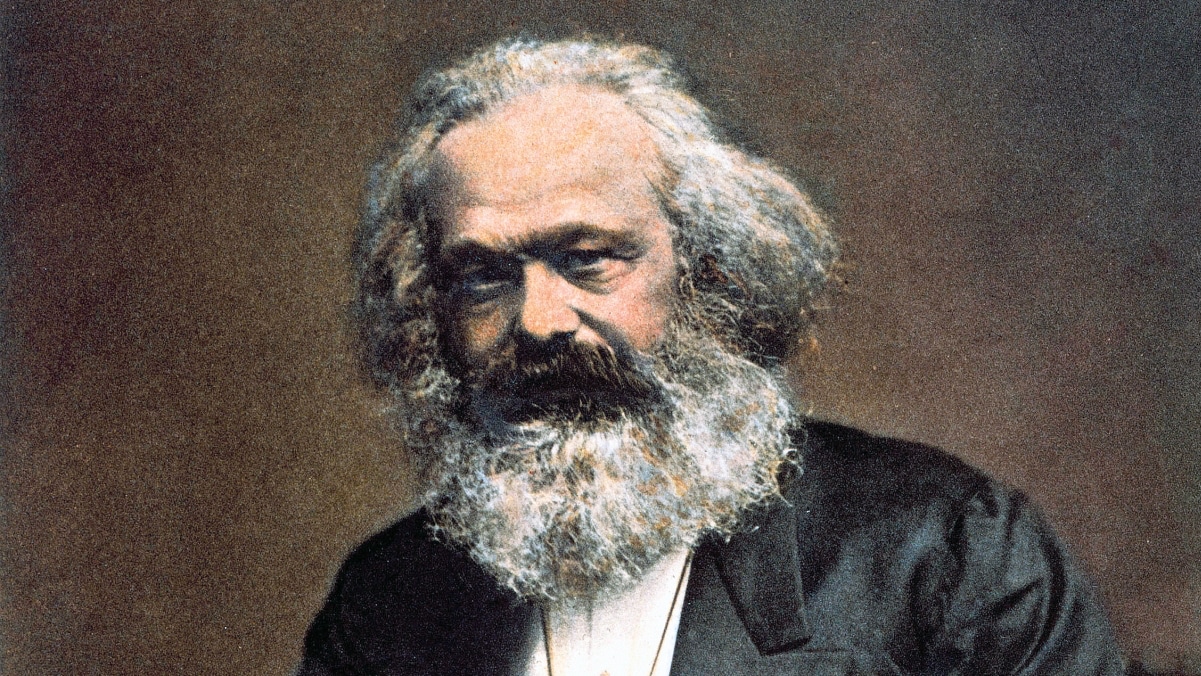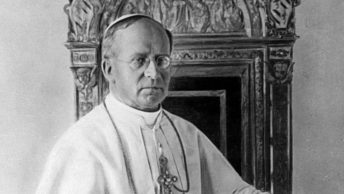With all the heated talk about America and Socialism, it is surprising to me that Americans may be waking up to the dire realizations that this country has been surreptitiously adopting this disastrous ideology for many generations. It is only now that when our goose or perhaps our frog has been gradually cooked that politicians are feeling bold enough to talk about it. This debate reminds me of the very first essay that I wrote for Eleanor Schlafly and her Mindszenty Foundation in 2003. It was not only my first, but arguably my best of the over 130 essays I did for her over my 11 years as her features editor.
But it is not exactly Socialism that we should fear. Often defined as benign Communism, this Socialism has a serious bite to it that could easily result in a dangerous civil war of not just idea, but citizen against citizen. Socialism will invariably evolve into full-blown, doctrinaire Marxism.
In their 1848 magnum opus, the Communist Manifesto, ideologues Karl Marx and Fredrich Engels warned that a spectre was haunting the established order of all of Europe from the monarchs, and prime ministers to the Catholic Church. Tracing its roots back to the French Revolution, this retooling of doctrinaire socialism strove to work the poor of the world into a revolutionary fervor that would replace the old establishment, ushering in a perpetual reign of earthly peace and harmony.
In order to achieve their lofty goals, Marxism had to eliminate the three major obstacles in its historic path. Russian author Igor Shafarevich reduced the Communist Manifesto’s 10 planks to three specific targets, which were private property, the Christian religion and the family. Shafarevich understood that communism was not just an economic system like capitalism but an ideology.
Marx regarded communism as the highest form of atheism because it affirms man through the denial of God. While private property and capitalism were the root of all evil, Marx saved his special opprobrium for the family. He believed that the family structure was inherently exploitative with capitalists treating their wives and children as property.
In a Marxist society, the management of the family would evolve into just another branch of social work. Children should be raised by the state. Marriage and inheritance needed to be eliminated because it perpetuates the family. Free love should be the only form of relationship allowed.
The sexual revolution have been a Marxist attempt to intrinsically destroy marital fidelity and ensure the destruction of the family. The care and upbringing of children, including what they eat and drink were social matters for the government. The impetus for gay marriage and unnatural reproductive policies is just another way to undermine the traditional family.
Most Americans, who were not weaned on a steady diet of anti-communism, and personal freedom in the fifties, would be shocked to learn how deeply that Marx and Engel’s utopian vision has penetrated America’s contemporary society. This is true because theirs is a quiet conspiracy that works within the dark recesses of human appetites. This assault on the pillars of American society’s basic institutions has existed for generations, dating back to the Progressive Movement of the early 20th century. Since then, Marxist philosophy has infiltrated and transformed most areas of American politics and culture.
David Mamet’s 1995 movie, the Spanish Prisoner, centered on a mysterious formula that several individuals schemed to steal. This formula was consistently referred to as the process. Similarly, Marx and Engels conspired to write their Communist Manifesto as an historical process that would take decades, if not centuries to come into full flower.
According to its progenitors, Marxism is founded on two kinds of materialism, the dialectical and historical. Marxism is materialistic because it holds that matter is the only reality. Marxists believe that all societies progress through the dialectic of class struggle. It will invariably evolve through the interaction of opposing material forces through several different historical paradigms, such as slavery, feudalism, capitalism, socialism and communism until human perfection is achieved and the state can fade away. According to the true nature of things, the state just continues to grow until it collapses under its own weight, only to be replaced often by a more repressive state.
Marx scorned the capitalist system, which he labeled the dictatorship of the bourgeoisie. He condemned the wealthy class as selfish miscreants who are interested solely in their own benefit. He predicted that like previous socioeconomic systems, capitalism would inevitably implode because of its inherent contradictions and tensions.
While their ideas were similar, Marx and Engels came from vastly different backgrounds. Karl Marx was born on May 5, 1818, in Trier, Germany. He was a revolutionary who advocated merciless criticism of everything existing. He studied at both the Universities of Bonn and Berlin, where he became interested in the philosophical ideas of the Young Hegelians. Moving to Paris in 1843, he began writing for other radical newspapers. In Paris, he began his long relationship with Frederick Engels.
After being exiled a number of times for his radical views, Marx moved to London with his family, where poverty was their constant state. In the spring of 1847, he and Engels joined a secret society called the Communist League. They both became active in various revolutionary groups, and together worked out the theory and tactics of Revolutionary Proletarian Socialism, which they christened Communism. In 1848, they collaborated on the Communist Manifesto, which outlines their revolutionary theory of class struggle, and highlights the significant role of the proletariat.
While Marx was always strapped for funds, Engels seemed to enjoy the blessings of the capitalist society he detested. The disgruntled son of a wealthy textile manufacturer, Engels was born in Barmen, Prussia in 1829 to a German father and an English mother. In 1845, he published The Condition of the Working Class in England, based on personal observations and research.
After collaborating on the Manifesto, Engels supported Marx financially so he could write Das Kapital. After Marx’s death, Engels edited the second and third volumes. His kinship with Marx proved to be one of the most lethal partnerships in world history. Through the dialectic, Marx and Engels promised that mankind could look forward to the attainment of a utopian society in this world, which they envisioned as the highest ideal the human race could seek. Their system, they believed, was destined to fulfill the human desire for peace and happiness, here on earth.
Their Manifesto argued that history invariably leads to social revolution and a classless society. They despised the capitalist economic system with its private or corporate ownership of goods. They disdained its unfettered decisions about production and distribution as determined by prices and demand in a free market.
Communists knew that the ruling classes would never willingly give up their control of society to a socialist government, and that revolution would be necessary. Revolution and blood was the only language that could establish the necessary radical changes in the societal structure. Their Manifesto also served as a warning that the revolution was coming and there was nothing anyone could do to stop it.
They believed that the common laborer could never have political equality or freedom without economic equality. Eventually, communism would let the workers control the wealth of a country by having the state take control the production of factories, farms, mines, and other industries.
All of the above should serve as a cautionary tale to those who distinguish between Communism and Socialism. Despite its benign appearances, Socialism cannot change human nature. The only way to insure their false equality is through the powers of the coercive state. One of its pillars in the Manifesto was the progressive income tax. As Supreme Court Chief Justice John Marshall warned in one of his landmark decisions, the power to tax involves the power to destroy. Keep that in mind whenever the Left regains full power and wants to double our taxes.









Marx and Engels hated the ruling class but wanted to create their own ruling class. Care of people is at the core of capitalism. I have to care about the person to create a product that people want and can afford. Ironically socialist don’t care about the people and it’s the dictator who determines the product and the price.